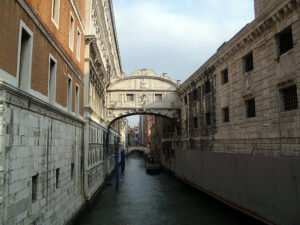Martha Wiseman has earned an Honorable Mention in Streetlight’s 2023 Essay/Memoir Contest
My mother sighed. Frequently, variously, operatically. She was, after all, a singer, a dramatic soprano.I can barely sing. But I can sigh. All my life I’ve apparently been practicing my mother’s repertoire of sighs. A teacher once told me I sighed more than anyone she’d ever met. She never met my mother.
***
My mother sighed when faced with something she’d prefer not to do (and she preferred not to do a great many things). She sighed when I became, as she might say, obstreperous. She sighed when thinking of her own history. Some of the arias she practiced sounded like sighs to me.

Let me catalogue her repertoire. Some sighs began with deep, long inhalations, as if she were sucking in air, the exhalations like descending arpeggios, a soul sinking down. Some entailed a rapid series of brief inhales followed by an extended sequence of outpuffs. Some involved a slow intake of air leading up to a heart-rending moan of Oh, God. Late in the evening, as she settled herself in bed—perhaps with her copy of The Food of Italy—the sighs ranged from melodic to labored and stuttered, an unmistakable song cycle, a summary of another melancholy day, her version, I like to think, of vespers.
***
My mother adored things Italian. She’d lived in Italy, studying opera, the year before I was born. I don’t think she lived in Venice. But perhaps she visited that watery city and crossed the Bridge of Sighs. My mother’s name was Nell, but she preferred to be addressed as Nella.
***
I’ve read that these days, one can enter the Bridge of Sighs only as part of a tour, and only in summer. As the bridge is enclosed and its windows barred, visitors may become overheated and claustrophobic. One would, I suppose, if one were headed to the prison on one side of the bridge.
Ah! Sospiro!
***
My mother may at one time have been in love with a tall Italian man named Gernando. She referred to him as a friend. At some point, I realized I hadn’t heard her mention him in a long time. I asked about him. Her face clouded and she sighed almost angrily and said she never wanted to hear his name again. I could glean only that they’d planned to celebrate New Year’s Eve together and he did not show up and soon married—married someone else, I supposed she meant. My mother never forgave him.
***
I’ve never been to Italy. But if I ever go to Venice, perhaps I’ll walk on the Bridge of Sighs and heave a good sigh for my mother.
***
My mother, despite her Italian leanings, did not like Puccini. I find that I don’t much, either. She loved Mozart, as do I, and he was Austrian. The libretti for most of his operas, however, were in Italian. She found Beethoven too Germanic. But she sang Hugo Wolf, and she was partial to Richard Strauss.
After my mother died, I found a picture postcard of Venice’s iconic opera house, La Fenice, among the few mementos she’d kept.
***
I don’t think my mother knew that Byron’s “Childe Harold” (he just goes on and on, she might have said) is credited with making the bridge famous:
I stood in Venice, on the Bridge of Sighs,
A palace and a prison on each hand:
I saw from out the wave her structures rise
As from the stroke of the enchanter’s wand . . .
The legends attached to the Bridge of Sighs—that convicts crossing over from interrogation in the Doge’s Palace to their place of confinement sighed their last sigh of freedom on this bridge or sighed at their last view of the city; that lovers passing beneath the bridge were guaranteed a never-ending amore, their sighs of contentment breathed upward—are just that, legends, the one historically impossible, the other wishful.
Maybe my mother slid under the Bridge of Sighs in a gondola. Was she with anyone besides the gondolier? Her own wishful thinking—her longing for lasting love, for an operatic life—would have led her to sigh dramatically, trailing her hand through the polluted water.
When she lived in Italy, she was married to my father, but he was not with her. She said she came home because she wanted to have me before she was too old. That wish was fulfilled, at least. The lasting love vanished.

***
I sigh. The sighs are my mother’s legacy. A bridge between us. Perhaps that is overly symbolic, but the metaphor seems fitting. Straightforward, which our relationship wasn’t.
Sometimes simplicity and straightforwardness are reassuring.
***
I hear myself taking a deep, almost gulping breath. I hear the rough, sorrowful exhalation that follows.
I hear my mother.

Share this post with your friends.

